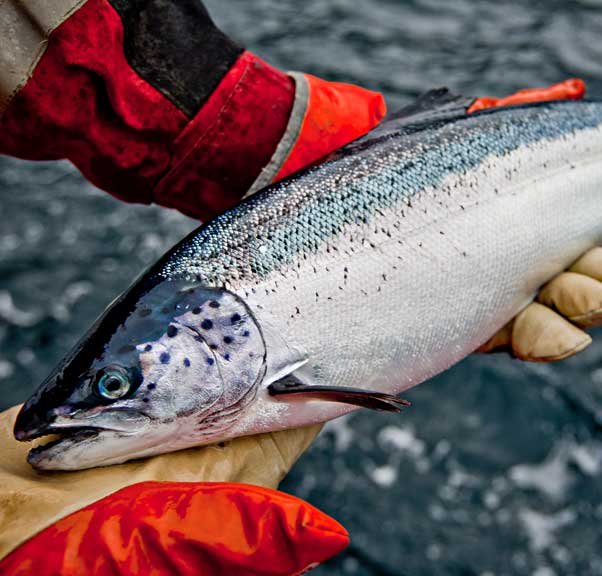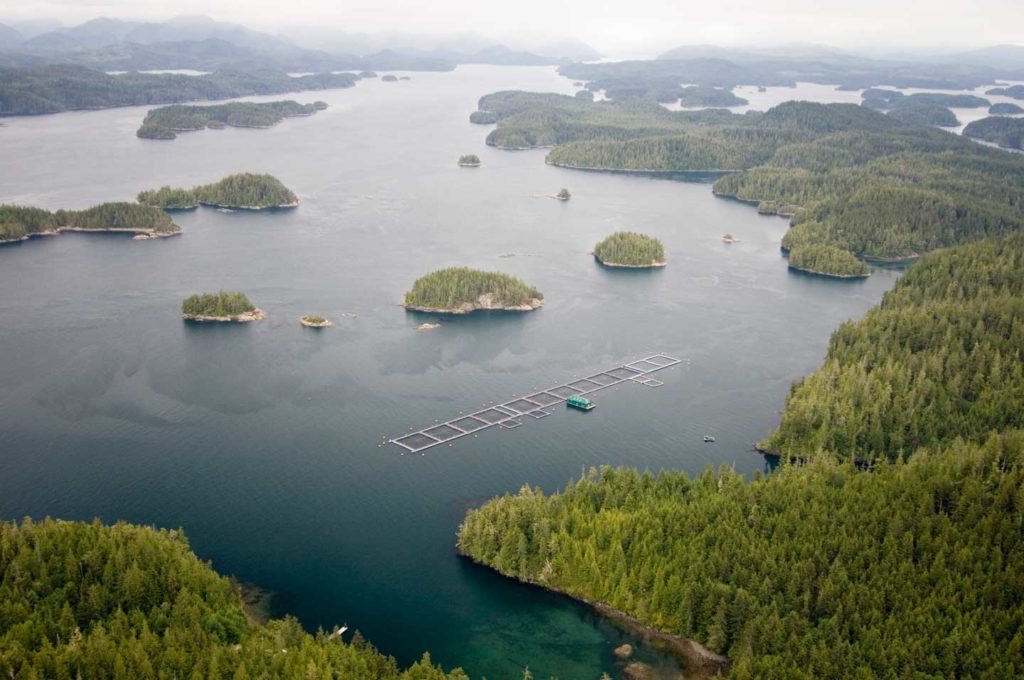Farmed and Wild Salmon in British Columbia
As the representative body of over 60 businesses and organizations in the finfish aquaculture sector in British Columbia (BC), the BC Salmon Farmers Association (BCSFA) aims to provide educational information about salmon farming to the public and stakeholders. Our goal is to promote opportunities for fish farming in BC by furthering public education and building trust in our sector. We engage with communities across BC, from Vancouver, Victoria, Port Hardy, and Campbell River, to Kelowna and even our Canadian capitol of Ottawa.
Understanding Farmed and Wild Salmon in BC
One of the more common questions we receive is about the differences between farmed salmon and wild salmon, particularly in British Columbia. This article aims to answer these questions and further our mission to build public understanding and trust in the industry.

What is the difference between farmed and wild salmon in BC?
In British Columbia, farmed salmon are grown in hatcheries on land-based farms and then in ocean-based aquaculture farms. They are processed at several locations across the province. Wild salmon, on the other hand, are born and raised in the wild and migrate as part of their lifecycle. Both farmed and wild salmon in BC live in the natural ocean environment during their saltwater lifecycle phase.
What are the advantages of farmed salmon?
Did you know that three-quarters of the salmon harvested in British Columbia each year is raised on farms? Aquaculture in BC allows for farmed salmon to be available year-round as an important part of a healthy diet for families. Salmon is nutritious, rich in micronutrients, minerals, marine omega-3 fatty acids, high-quality protein and several vitamins. With the impact of climate change on wild fish populations, salmon farmers provide the world with a healthy and sustainably produced protein source.
Farmed salmon is one of the most resource-efficient animal proteins available. Compared to terrestrial proteins, farmed salmon in BC use the least amount of feed and freshwater and have the lowest carbon footprint. The waters of BC naturally provide ideal conditions for farming healthy salmon. Remarkably, less than 0.05% of BC’s coastal area produces almost 86,000 tonnes of fresh salmon annually, demonstrating significant efficiency.
What are the challenges of farmed salmon?
Transparency is important for salmon farmers and the BCSFA. While salmon farming does allow for many environmental and supply chain advantages, it is not without challenges. Fortunately, BC salmon farmers are passionate about the health of their fish and the sector as a whole invests heavily in continuous improvement and transparency.
Fish feed used in salmon farming has been a source of concern in the past. However, salmon farming companies aim to remain at the forefront of environmental responsibility. As such, ongoing research and development coupled with the need to satisfy both fish health requirements and consumer demand for responsible sourcing means a wide range of new and sustainable raw materials and ingredients are entering the feed picture. These advances, both using sustainable feed ingredients and using more efficient feeding techniques, mean that BC farmed salmon now require as little as 1.2 kg of feed to gain 1 kg of body weight. Farm-raised salmon actually has the best feed-conversion ratio of all animal proteins.
Excessive sea lice loads can impact the health of wild juvenile salmon. While sea lice occur naturally in BC waters on many species of fish, farmed salmon smolts entering the ocean do not have lice. Sea lice can be transferred to farmed salmon from the environment and/or other fish once they enter the ocean. Significant advances in managing sea lice have allowed for continuous improvement and innovative options in managing this pest. As a result, industry management of sea lice continuously improves and salmon farms are regulated through strict guidelines to ensure the health of their fish and the environment they operate in.
The Future of Farmed Salmon in BC
Every day, people across Canada and the world enjoy healthy, nutritious, and delicious meals thanks to BC fish farmers and their farmed salmon. Farmed salmon is a great source of vitamins, minerals, omega-3 fatty acids, and high-quality proteins. While challenges remain, the industry’s commitment to transparency and continuous improvement drives efficiencies, promotes healthier fish, and expands our understanding of wild salmon and the marine environment.
For more information about farmed and wild salmon in British Columbia and how the BC Salmon Farmers Association supports sustainable aquaculture, visit our website or contact us directly. Whether you are in Vancouver, Victoria, Port Hardy, Kelowna, Ottawa, or Campbell River, we are here to answer your questions and provide educational resources.
